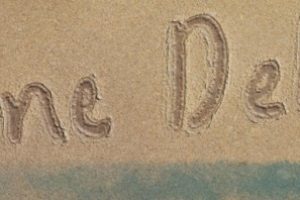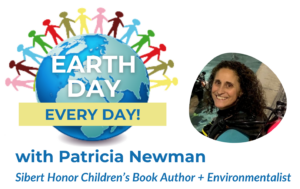Plastic, Ahoy! Investigating the Great Pacific Garbage Patch is not simply a children’s nonfiction book, it’s a rallying cry to readers to become part of the solution. During school and Skype visits, I’ve found that readers want to help, but they are unsure how to go about it, so I’ve compiled a list of ideas and resources that might help get you started.
But first, some inspiration: First grade readers at W. E. Striplin Elementary School in Alabama decided to reduce the amount of Styrofoam in their lunchroom. The students received permission to switch to reusable trays for several weeks to understand how much Styrofoam first graders alone could eliminate. The lunchroom produced an average of eight garbage bags of trash a day. The first graders cut the garbage output by two bags per day with reusable trays. Now their focus is to eliminate Styrofoam in the lunchroom for all grades.
- Carrying reusable bags to the grocery store.
- Refusing Styrofoam take-out/left-over containers (ask for foil instead, which can be recycled after you use it).
- Drinking water or coffee out of reusable bottles or mugs.
- Take a selfie for the sea, in which you show yourself doing something for the ocean.
- Create recycled plastic sculptures to increase awareness of plastic waste.
- Celebrate Earth Day and World Oceans Day or participate in an International Coastal Cleanup.
Are you looking for something to do in a classroom setting? I suggest a waste audit to see just how much plastic trash comes through your life in a day, a week, and a month (see page 18 of my teacher guide for instructions and the necessary chart).
- Teens from Granada Hills High School designed a remotely operated vehicle (ROV) to take video evidence of plastic pollution for Captain Charles Moore on his July 2014 expedition to the North Pacific Central Gyre.
- Form an environmental club at school or in your community, such as the students from Team Marine at Santa Monica (CA) High School who created the featured video.
Other resources: To learn more about marine debris, contact Katie at Algalita’s Ship2Shore program for activity kits on Debris Science and Mapping Plastic Marine Pollution.





Leave a Reply
Your email is safe with me.